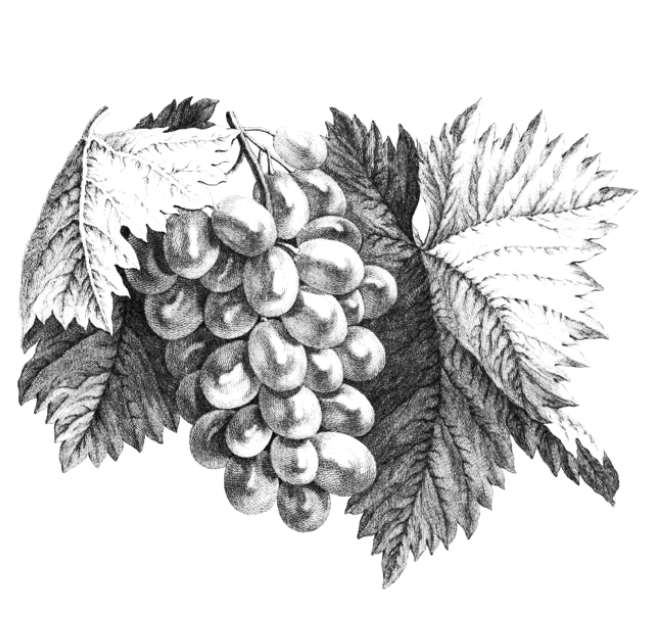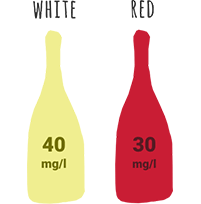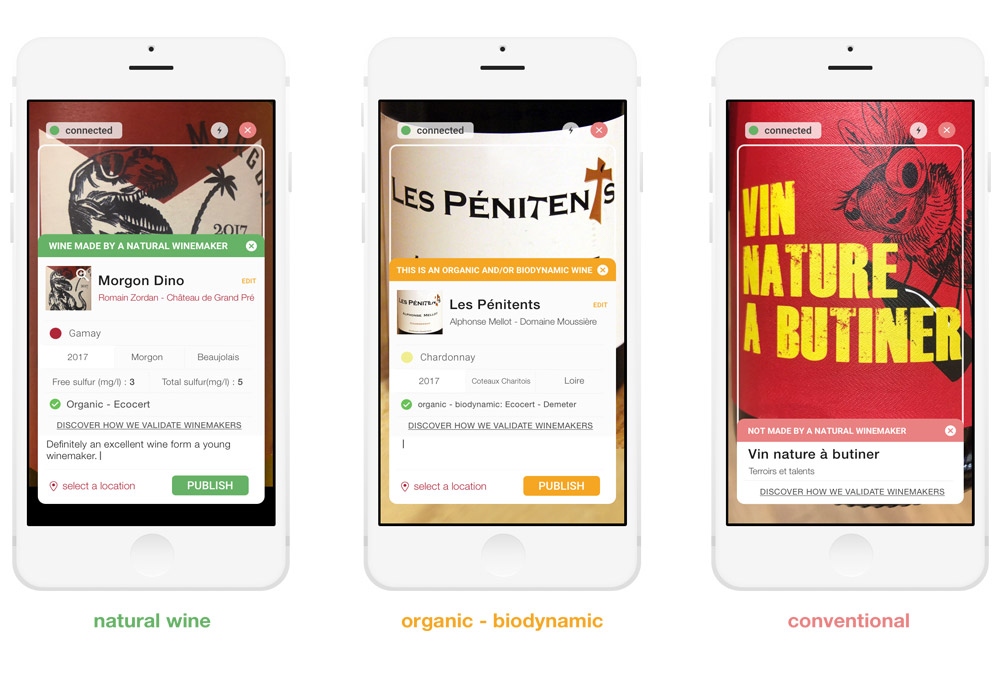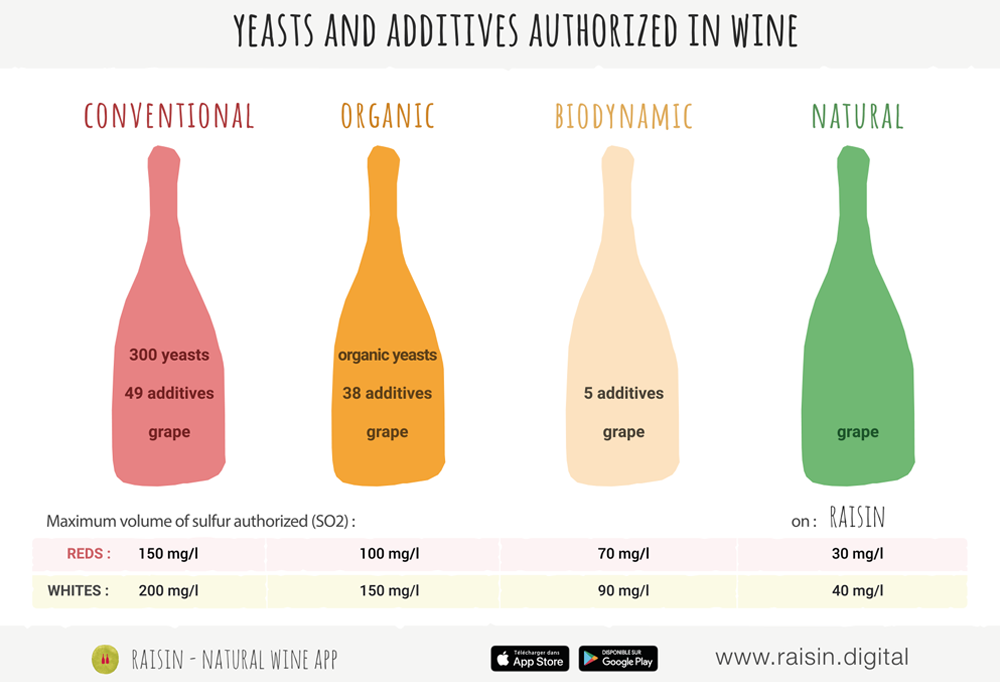
What is natural wine?
In French, “Raisin” means grape, and it is that simple! Natural wine is made from this single ingredient - grapes - and sometimes a little bit of sulfur. Yes, it is most often organic or biodynamic as well.
It’s a wine that respects man and nature, produced by winemakers who are dedicated to making healthy, vibrant, alive wines without using chemicals in the vines or in the cellar. It’s a wine that surprises consumers and is good for them too - more and more people don’t want pesticides, herbicides, and fungicides in their wine… they want to experience something unique and radically delicious!
HOW WE MODERATE WINE & WINEMAKERS?
Introduction
At this decisive time as our planet faces climate change, our relationship with the world around us and moving to sustainable agriculture is critical. In France, one of the world's largest wine producers, 30% of pesticides are concentrated into only 3% of the agricultural surface. Conversely, producing natural wine benefits the ecosystem in a humanistic way. The natural wine app aims to support these gardeners of the vines (aka winemakers), and allow them to be paid off for their hard, honest work. Meanwhile, the average price of a bottle of wine can be as low as 1,99 € in southern Europe, to much higher in non-wine producing countries. With this disparity, it is impossible to make a quality wine so cheap without dramatic shortcuts that significantly impact fair wages and the environment alike. If tomorrow the vineyards were made of up winemakers all working in this eco-friendly fashion, it would create a world of difference with beautiful biodiversity and a balance in our environment.Our intention:
Since its creation, Raisin has aimed to make the natural wine world more easily accessible and understandable for everyone. To do so, the app shows our users where they can find this type of wine. With the new label scanning feature, we are taking it a step further and offer transparency as how your wine is made. Imagine going into an establishment, scanning a label, and being confident that the wine in your glass is one that is respectful of the environment and man. This feature is not intended to replace the expertise of a sommelier or a wine merchant, rather to serve as a complementary and practical tool.Our definition of natural wine:
Natural wine is wine made from only grapes, and sometimes a little bit of sulfur (no more than 30 mg/L for reds and 40 mg/L for whites). While they are often certified or practicing organic or biodynamic farming in the vines, these wines go beyond any certification standards in the cellar, resulting in wines that restore the taste of fermented fruit. It’s a wine that highlights the work of the winemaker, not a factory. This is a wine that respects both nature and the people behind it, and that’s the bottom line. For reference, here are the levels of yeasts and additives authorized in wines:
Natural winemaker?
We consider a winemaker is natural if at least 50% of their wines are made with grapes only, and sometimes minimal doses of sulphur, in respect of the environment and of mankind.
No more than 30 mg/L for reds and 40 mg/L for whites.
What are our criteria for validation?
Raisin desires to embrace the natural wine movement in all its diversity, which of course includes its rebellious side that rejects any fixed definition. However, our team is loyal to certain criteria that we have borrowed from the Association of Natural Wine’s (Cahier des charges (AVN)) original charter, and this is something that we promise to our users! The wines we validate must be made without pesticides or the use of additives, with the exception of the occasional small amount of sulfur added (30 mg/L for reds and 40 mg/L for whites maximum). Therefore, we validate wines based on the work done by the winemakers themselves, because that’s what it all comes down to! For a winemaker to be considered natural on Raisin, 50% of the wine they produce must fit this natural philosophy.How can we distinguish between different wines?

With our title being “the natural wine app,” our ambition is to create a complete list of all wines produced naturally, with as much detail as possible regarding how they were crafted, and the artisans who made them. On the other hand, we have no interest in listing all of the conventional wines out there, nor those that are already certified (AB, Ecocert, Demeter, Biodyvin, etc).
Instead, we strive to highlight true initiatives for natural winemaking, and avoid any confusion from deceiving advertisement on labels. That is why each wine posted on Raisin is reviewed according to these three categories:

🍇 HOW TO BE REGISTERED AS NATURAL WINEMAKER?
Raisin's mission is to be as representative and reliable as possible regarding the information we offer to natural wine lovers around the world. As you know, there is no universal certification or label for natural wine, which is why we pay close attention to the engagement of the people we include in our database. To this end, we ask for as much information as possible from each of the winemakers we reference.
What can I do to be referenced in Raisin?
-
📁 Your description:
First, write a description of the following details:
- 1 - Your vision of the trade and the objectives you follow when making wine.
- 2 - Your work in the vines as well as in the cellar in order for us to understand the nature of your intervention at every step, and in particular in the vinification process.
- 3 - Indicate the certifications you have: organic, biodynamic, etc. Please, specify the organization awarding the certification in question (documents are requested).
-
🔬 Your analysis
First, write a description of the following details:
- 1 - Please provide us with the analysis for ALL the wines you make.
- 2 - Raisin ONLY recommends winemakers that make at least 50% of their wines in a natural-focused process, based on the total volume of wine produced.

